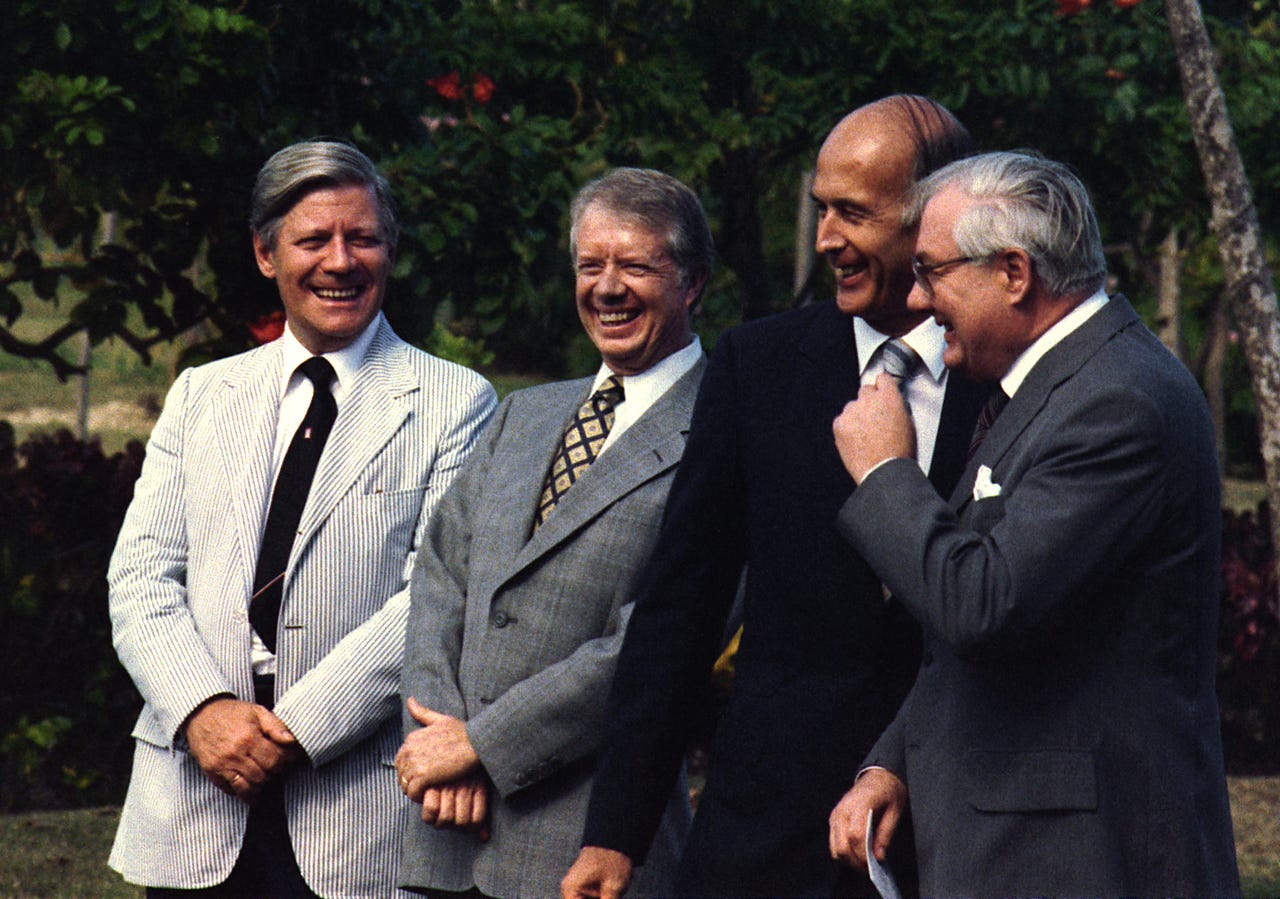In the mid-1970s, Britain seemed adrift. The once-mighty industrial nation that had led the world in trade, finance, and empire now found itself plagued by strikes, inflation, and political drift. The nation’s self-image as a world power had collapsed with the Empire; its economy sputtered in comparison with rivals in Europe and the United States; its politics felt paralysed. For many, the story of decline had become unavoidable.
Yet as we saw in the last chapter, crises don’t simply speak for themselves. They are narrated, dramatised, and politicised. The 1970s were not just a decade of economic statistics and gloomy headlines; they were the moment when different anxieties (specifically about jobs, about morality, about Britain’s very identity) converged into a single sense that the country had lost its way.
Thatcherism was born from this crucible. Before it could become a governing project, before it could restructure the economy and remake society, the ground had to be prepared. That preparation happened in the crisis years.
This chapter unpacks those years. We’ll begin with the economic contradictions of the 1970s: stagflation, industrial unrest, and Britain’s humiliation on the world stage. Then we’ll turn to the social and cultural upheavals: permissiveness, crime, race, and the search for identity in a post-imperial society. Finally, we’ll explore the politics of crisis construction: how narratives of decline hardened into common sense, making radical change possible.
The 1970s were not just a decade of economic statistics and gloomy headlines; they were the moment when different anxieties converged into a single sense that the country had lost its way.
The economic collapse of consensus
The golden age unravels
For thirty years after 1945, British governments operated on the assumption that Keynesian economics could guarantee prosperity. The idea was simple: when the economy slowed, governments would “pump prime” demand with public spending; when inflation threatened, they would rein it in. Combined with an expansive welfare state and the nationalisation of key industries, this “post-war consensus” created full employment and rising living standards.
By the 1970s, however, the consensus was unravelling. Economic growth slowed dramatically. Productivity lagged behind competitors in Germany, France, and Japan. Britain, once the “workshop of the world,” seemed stuck in a cycle of boom and bust.
The oil shocks of 1973 and 1979 were the breaking point. Triggered by Middle Eastern conflicts and OPEC embargoes, they quadrupled global oil prices. Inflation surged into double digits. At the same time, unemployment rose — creating stagflation, a phenomenon orthodox Keynesianism could not explain. The trusted tools of economic management seemed useless.

The IMF humiliation
In 1976, Labour Prime Minister James Callaghan was forced to go cap in hand to the International Monetary Fund (IMF) for a $3.9 billion loan — the largest in its history at that point. For a nation that had once bankrolled the world, this was humiliation. Callaghan’s statement to the Labour Party conference that year was devastating:
“We used to think you could spend your way out of a recession… I tell you in all candour that that option no longer exists.”
It was the death knell of the post-war settlement. If government spending could no longer guarantee prosperity, what could?
Keep reading with a 7-day free trial
Subscribe to Rookery Review to keep reading this post and get 7 days of free access to the full post archives.


